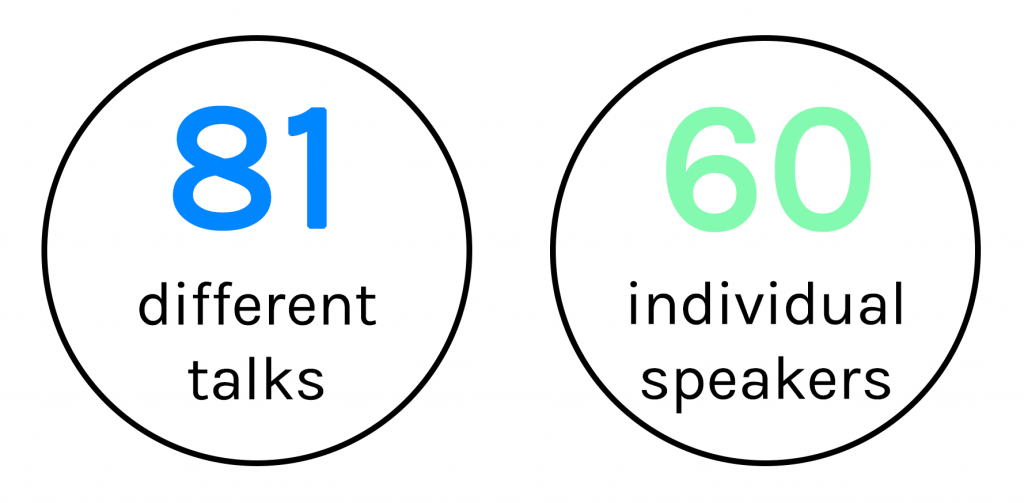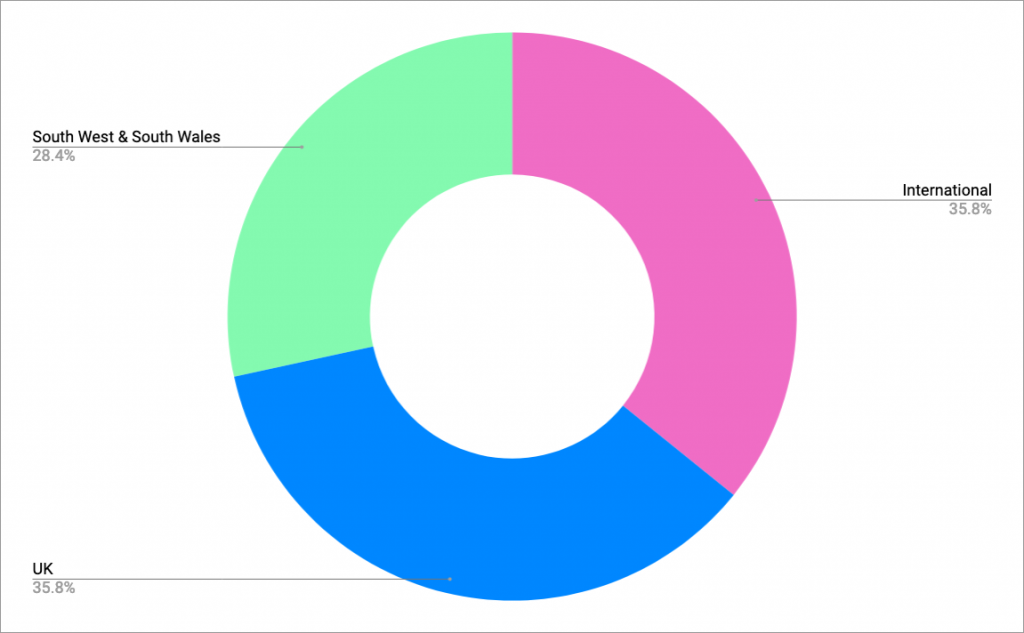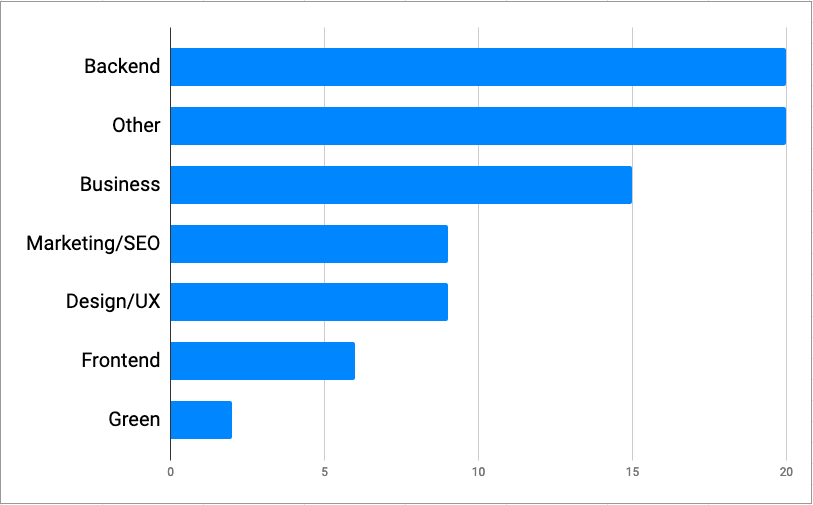We thought it might be useful for others, especially those who submitted talks to us, to see inside the speaker selection process . Here’s how we went about this most difficult of processes!
The targets we set ourselves
First up, as a team we agreed some targets that we wanted to aim for.
- 80% local speakers – local being South West and South Wales
- 50% male and 50% female speakers
- A diverse range of topics covering backend development, frontend development, UX/design, marketing/SEO, running a business and green/environmental issues.
It’s really important to note that we agreed these were only aims, and not hard and fast rules that had to be met. We agreed there would be no positive discrimination of any form, in order to meet these aims.
Talks would go through on the basis that the speaker had something interesting to share that others would benefit from hearing, not because we wanted to fill a specific quota of any kind. The aims were intended to guide us and help us make decisions when it came to the hard choices.
Another point worth mentioning is that we decided not to labour too long on the perfect selection of topics. You could have umpteen different categories but we decided that the above pretty much nailed it.
Keeping track as submissions came in
As our submissions came in we monitored how we were doing against these aims. Each talk submitted was added to a Google doc and with the use of some spreadsheet formulae we were able to instantly see what the make-up of our submissions was like.
For example, with two weeks to go before our submission deadline we saw that only 30% of our submissions were from women. Knowing that at that point allowed us to put some effort in to reach out to women in our community and encourage them to apply.
We also saw that we had zero submissions on the topic of green or environmental issues. Again, knowing that early enough meant we could ask around and give potential speakers enough time to put a submission in.
The final set of submissions




How we ran the selection process
Input from the other organisers
The selection team was Simon (speakers manager), Janice (overall lead) and me, Hannah (co-lead). We knew that input from our other organisers was vital to have. So we asked the 6 of them (Rob, Jacob, Sarah, Ronald, Ben and Rich) to champion one talk each that they really wanted to be put through, on the understanding that these talks would be given a heavy weighting in the selection process.
Find the talks were 100% agreed on
On the selection day Simon, Janice and I went through the entire list, first finding the talks that we unamiously agreed should be on our schedule. Any talk that we weren’t all completely agreed on we marked as maybe, unless one of the other organisers had championed it. This first pass left us with around 40 selected talks for 24 slots.
Use stats and filters to help us remove duplication and meet our aims
I had set up some spreadsheet formulae so we could keep a track of how our initial selection stacked up against our aims. We could see for example that we were way off our aim of 80% local speakers. We could also see that we had a really high percentage of backend talks but not all that many frontend talks.
Using spreadsheet filters, we just looked and discussed the talks in various categories and trimmed where we could. By looking at the selected talks by category we could see we had selected a few that were covering the same topics. Remote working, headless CMS and Gutenberg were topics where we had multiple talks we wanted to put through. We then choose the best talk for each topic. If that decision was too hard to make, we went with a local speaker where possible.
Compare the final list against the WordCamp London schedule
Eventually we paired the list down 28 talks that we all really wanted. Still too many! Our final way of deciding was to look at the recently published WordCamp London schedule. Whilst it was not an aim to have a different schedule to London, we agreed that showcasing different speakers and talks would help to set us apart and also give the wider WordPress community access to a more diverse set of knowledge and ideas.
The final schedule!
We’re incredibly proud of the final schedule and know that we will have an absolutely stella line-up. However, we are also really sad that we had to pass on so many incredible sounding talks. We even discussed whether we should do an extra day to accommodate it all!
We’ll be releasing our full schedule up by the end of March.


